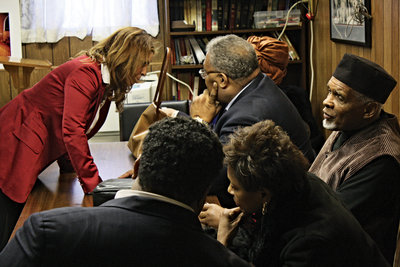The Third Circuit Court of Appeals has ruled against two men who sued the city for alleged discrimation, saying they have failed to prove their case, and ruled that a judge who dismissed their case did not have to recuse himself even though he had a former connection to the city’s mayor at the time.
Last year Earl Rowan and Simon Taylor, who sued the city claiming discrimination, had appealed orders from a district court that dismissed the case.
A U.S. District Court judge who earlier dismissed a discrimination suit alleging that the City of Bayonne violated the civil rights and free speech of two African-American employees was allegedly a contributor to then-mayor Joseph Doria at the time of the alleged discrimination.
Last August, the judge was transferred from the case in what was then called a routine shift of duties.
Claims of alleged discrimination and retaliation
Rowan and Taylor filed their original suit in 2005, claiming that they were denied promotions while their white counterparts with less seniority were promoted. When the two men complained, they were allegedly assigned to demeaning and menial jobs. The suit also claims that supervisors openly used the “N-word.”
The case has dragged on for the last six years, and could have ended in January when Federal District Court Judge Peter G. Sheridan dismissed their case.
Sheridan in his ruling said that the two men had failed to show a public concern in their case with the supervisor and had allegedly missed the 300-day filing deadline for filing the complaint about the promotion while Rowan was working for the Bayonne Parking Authority. Taylor was a Department of Public Works employee at the time of the alleged discrimination.
Both men countered that this was not true, and Attorney Karen DeSoto, who represents Rowen and Taylor, challenged the ruling with another appeal. In researching the appeal, DeSoto said she also discovered campaign contributions made to the Doria campaign by Sheridan and his legal firm.
“The appellants contend that the District Judge was required to recuse himself based on his relationship with the City’s mayor. We disagree.”
__________
In a suit filed in April 2011 in U.S. District Court, DeSoto claimed that the Sheridan’s personal relationship between Doria and members of his administration should have been disclosed and that the judge should not have ruled on this case or other cases involving the City of Bayonne during that period.
The suit also alleged that Sheridan was assigned to a separate but associated companion case in which African-American and Hispanic employees of the Bayonne Department of Public Works claimed they had faced racial discrimination and lack of promotions. The suit claims that these were “the direct result of policies and practices of Mayor Doria and his administration.” The suit also said many of the same individuals make up the current administration.
In the suit, DeSoto said that she had been notified of a relationship between Judge Sheridan and Doria as well as other people connected to his administration, and according to an affidavit attached to the suit, Doria and Sheridan are personal friends.
Doria and Sheridan also served as trustees together at St. Peter’s College. And Sheridan, Sheridan’s brother, and Sheridan’s law firm all contributed to Doria’s election funds, spanning a period from 1999 to 2006. Doria served as mayor of Bayonne from 1998 to 2007.
Appeals Court supports District Court ruling
“Rowan alleges that he was retaliated against by being twice demoted and Taylor alleges that he was denied overtime pay,” the Appeals Court ruling said this week, supporting an earlier ruling by the District Court that the complaints of the two men were personal, not public.
“We agree with the District Court that the appellants’ statements focused on personal grievances and did not relate to any public concern,” the ruling said. “The appellants did not seek to expose discriminatory or harassing practices by the city; rather, they complained only about isolated acts directed solely at them. Thus, appellants have not shown that they engaged in any protected speech.”
The Appeals Court said the suit did not establish a causal link between actions taken by the men in complaining about discrimination, and later actions they claimed the city took in retaliation.
The Appeals Court said that the District Court had acted properly in dismissing the two men’s case against the City of Bayonne.
As for the alleged conflict of interest, the Appeals Court ruling went on to say, “The appellants contend that the District judge was required to recuse himself based on his relationship with the city’s mayor. We disagree.”
The appeals court said state law claims that “a District judge shall disqualify himself in any proceeding in which his impartiality might reasonably be questioned or where he has a personal bias or prejudice concerning a part.”
The city has not yet responded to requests for comments. Attorney Karen DeSoto, who represents Rowan and Taylor, is currently reviewing the ruling.
Al Sullivan can be reached at asullivan@hudsonreporter.com.
